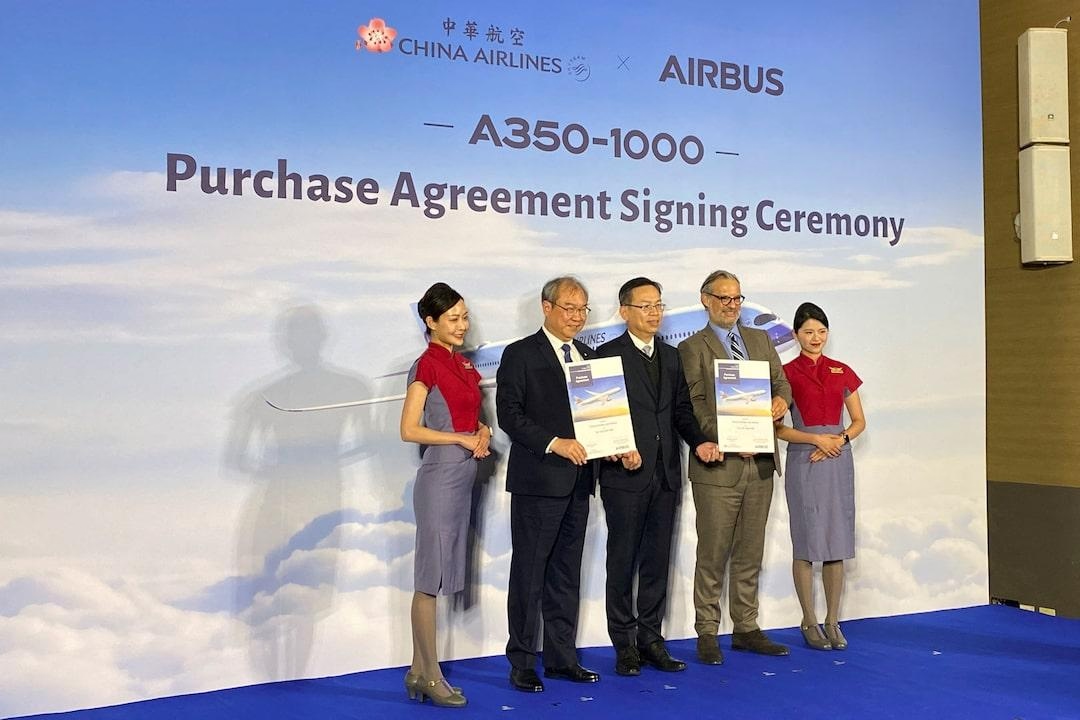AeroGenie — Tu copiloto inteligente.
Tendencias
Categories
Airbus Addresses Supply Chain Challenges to Improve Aircraft Deliveries

Airbus Addresses Supply Chain Challenges to Improve Aircraft Deliveries
Airbus is making notable progress in managing the persistent supply chain disruptions that have affected its aircraft delivery schedule, according to senior company executives. At a recent press briefing in Taiwan, Benoit de Saint-Exupery, executive vice president of sales for Airbus commercial aircraft, highlighted the company’s enhanced capacity to anticipate and mitigate these challenges, particularly in engine supply. He attributed these improvements to lessons learned during the pandemic, which have informed Airbus’s strategic response to ongoing constraints.
Despite these efforts, Airbus continues to experience the repercussions of global supply chain limitations. The company reported a 4% decline in aircraft deliveries in May 2025 and a 5% decrease year-to-date, underscoring the difficulties in sourcing critical components. Airbus remains committed to meeting its 2025 delivery targets but has cautioned customers about potential delays extending up to three years. These setbacks have opened opportunities for competitors to gain market share amid Airbus’s operational challenges.
In 2024, Airbus delivered 766 jets, achieving its annual targets despite facing industrial delays comparable to those encountered by rival Boeing. Data from the IndexBox Market Intelligence Platform indicates that while the global aerospace sector is gradually stabilizing, a full recovery to pre-pandemic conditions has yet to be realized.
Supply Chain Improvements and Strategic Orders
De Saint-Exupery acknowledged that although the supply chain situation is improving, a complete return to normalcy will require additional time. During his visit to Taiwan, he formalized an agreement with China Airlines for the purchase of 10 Airbus A350-1000 aircraft. This order forms part of China Airlines’ broader $11.9 billion fleet renewal strategy, which also includes Boeing 777-9 and 777-8 freighter jets.
The introduction of the A350-1000s is expected to enhance China Airlines’ capacity on high-demand long-haul routes such as New York and London, addressing strong passenger and cargo demand. China Airlines Chairman Kao Shing-hwang expressed confidence in the airline’s prospects, anticipating a robust year for both passenger and freight operations.
China Airlines’ decision to diversify its fleet between Airbus and Boeing reflects a strategic approach aimed at operational resilience and flexibility. This diversification enables the airline to better respond to varying market demands and route requirements, thereby optimizing network efficiency and service quality. The inclusion of fuel-efficient models like the A350-1000 also underscores China Airlines’ commitment to sustainability and reducing its environmental footprint, aligning with broader industry objectives.
As Airbus continues to navigate supply chain challenges, its ability to uphold delivery commitments and secure new orders will remain under close scrutiny by industry observers and competitors. The company’s experience highlights the wider difficulties confronting the aerospace sector as it strives to recover from pandemic-era disruptions and adapt to evolving market conditions.

Emirates Unveils Cabin Design for New Boeing 777X

Eighteen Years On, the Airbus A380 Remains Central to a $34 Billion Airline

How a boom in luxury airline seats is slowing down jet deliveries

Navitaire Outage Attributed to Planned Maintenance

DigiYatra Debuts Outside Aviation at India AI Impact Summit

Vietnam Orders Strengthen Boeing’s Commercial Outlook

Airbus Signals Uncertainty Over Future A400M Orders

JobsOhio Awards $2 Million Grant to Hartzell Propeller for Innovation Center

Collins Aerospace Tests Sidekick Autonomy Software on YFQ-42A for U.S. Air Force CCA Program

How the Airbus A350-1000 Compares to the Boeing 777
